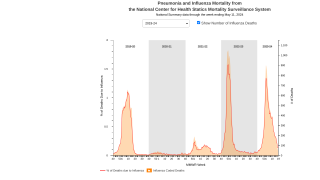Smoking Increases Influenza Risk By 5x

Although smoking has been recognized as a risk factor for many respiratory diseases, its effects on influenza-associated morbidity and mortality remain less known.
Through its effects on the human immune system, new research published on August 26, 2019, indicates ‘smoking may facilitate influenza virus infections and related complications.’
According to a new study by researchers at the University of Nottingham, smokers are more than 5 times more likely than non-smokers to get sick with the influenza virus.
Additionally, for the studies included in this research, the occurrence of influenza-like illness (ILI), current smokers were 34 percent more likely to develop ILI than non-smokers.
The objective of this study was to ‘enhance the awareness that ‘smokers have an increased risk of catching the seasonal flu.’
This study systematically searched MEDLINE, EMBASE, CINAHL, LILACS, and Web of Science to identify relevant randomized control trials, cohort, and case-control studies through November 2017.
Previously, the University of Nottingham published smoking-related studies on the following topics:
- Current smokers are 33 percent more likely to miss work than non-smokers and were absent an average of 2.7 extra days per year.
- Pregnant women who suffer from pre-eclampsia are putting the lives of their unborn children at significantly increased risk if they continue to smoke during pregnancy.
The US Centers for Disease Control and Prevention (CDC) offer these insights:
- Cigarette smoking is the leading preventable cause of death in the United States.
- Cigarette smoking causes more than 480,000 deaths each year in the United States.
- Cigarette smoking harms nearly every organ of the body causing many diseases.
But there is some good news from the CDC, which says, ‘quitting smoking lowers your risk for smoking-related diseases and can add years to your life.’
Influenza News published by Precision Vaccinations.
Our Trust Standards: Medical Advisory Committee

























